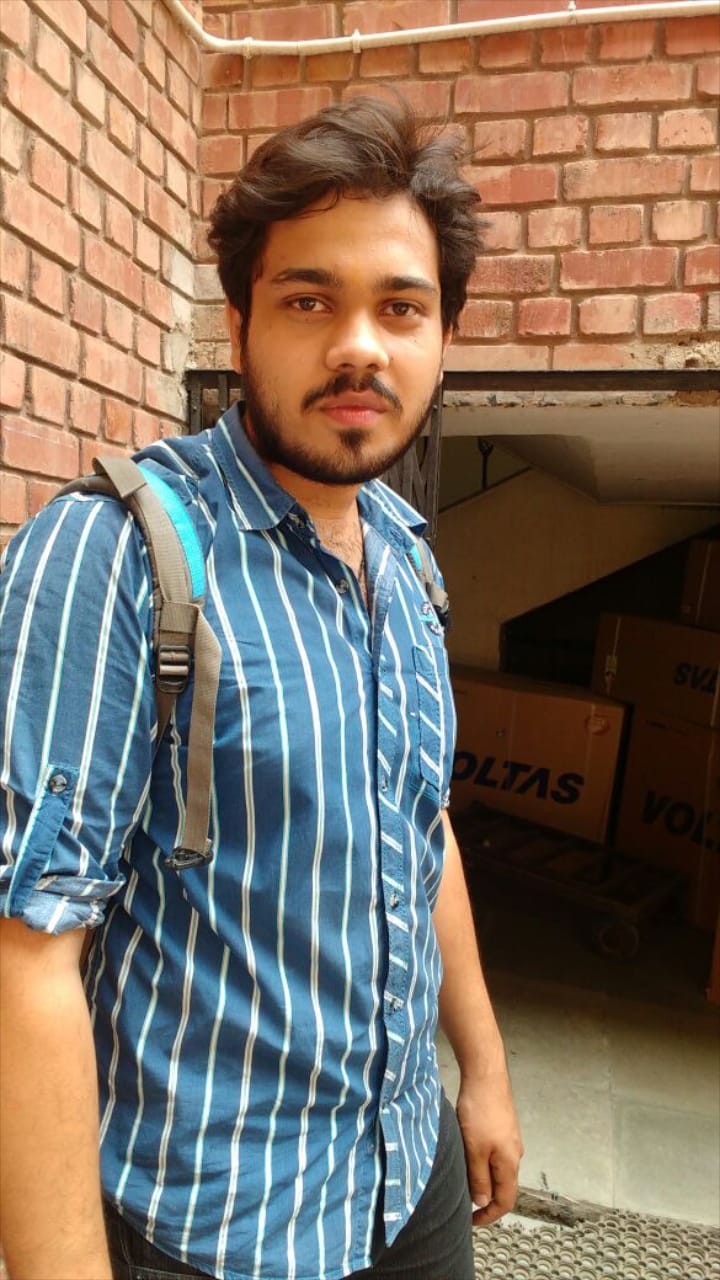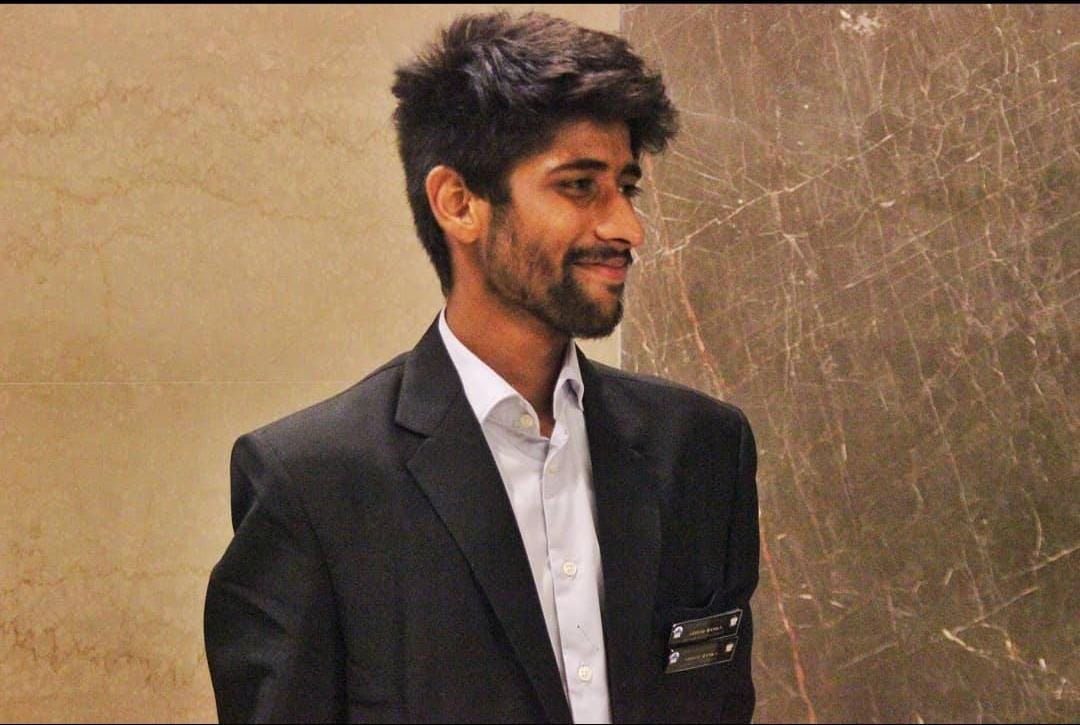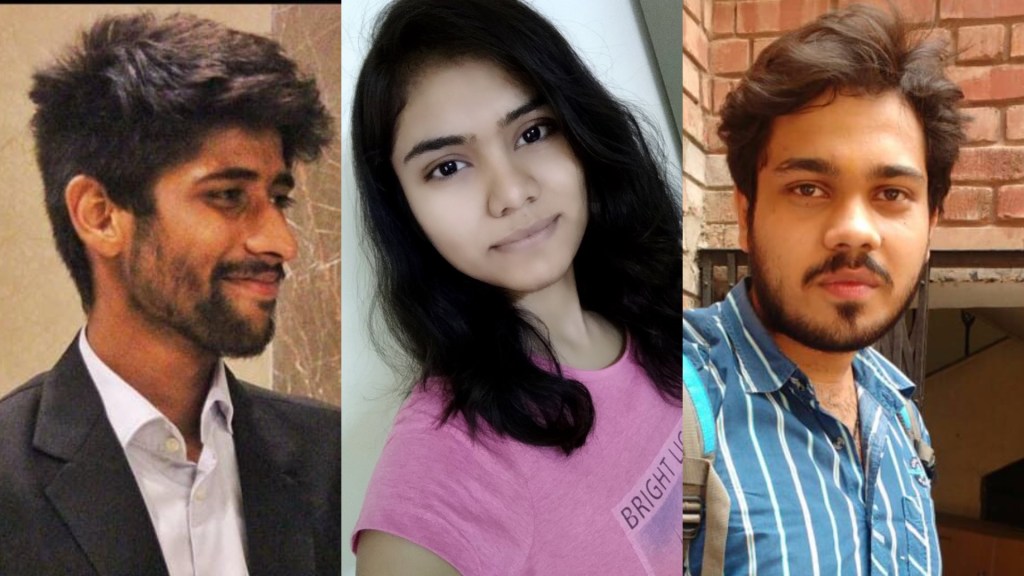Just when we were all feeling bad for the millennials for coming of age in the 2000s amid a global financial meltdown, taking on more student debt than the baby boomers, unable to own houses and being wrongfully blamed for “killing everything”, there came the pandemic to remind us that the next generation could actually have it far worse.
Growing up in a world ravaged with the climate crisis, rising suicides and deteriorating freedom of speech meant the generation was dealing with stress, anxiety and depression even before the global health crisis. And then came the pandemic. With schools going digital, jobs going missing, graduations happening on Zoom and students stepping out into a world filled with the double threat of pandemic and the recession, this generation is free-falling into a version of the future no one saw coming.
Videos by VICE
And in India, their collective existential dread has been compounded by the very structures meant to protect their futures: the government and the universities.
Across the country, many universities and government education departments have taken stringent measures against their students. Medical students in some civic-run hospitals in Mumbai weren’t paid their stipend for almost three months, some engineering universities have been inconsiderately pushing for exams despite not having the means to properly conduct them, while some others have had strict evaluation policies which fail to consider the university’s own infrastructural flaws. Others have, in a draconian move, even restricted their students from speaking out against the university.
Exams for universities across India are usually conducted in and around May. But due to the coronavirus crisis, they were either cancelled or postponed to be conducted online. Except, none of the universities postponing these exams had thought about the logistics involved in conducting online exams. The University of Delhi (DU), one of the first institutions to come up with online exams, has had its students and professors protest against the decisions since the past month. Citing legit reasons like lack of accessibility to the necessary technology and infrastructure, lack of access to the required study material and the university’s own technological failures, in addition to students’ severely worsening mental health, students have been asking the university to reconsider. When the university refused to listen, students had even resorted to vandalism as a means of protest.
Then, the University Grants Commission (UGC), on July 6, made it compulsory for universities to hold exams for their final-year students by September 30—despite a large number of universities initially not planning to do so, and neither being prepared to do so. Needless to say, students were infuriated with the authorities disregard for student demands, so much so that they even trended #StudentLivesMatter on Twitter the next day.
The commission, however, citing reasons like “long term interest of the students”, has insisted and continues to insist on conducting exams, shutting down all suggestions of alternative methods of evaluation. These policies fail to consider that they have affected students’ results, their future placements, higher studies options, and of course, their mental health. By now, the majority of the universities have chalked out an exam schedule to comply with the guidelines. The guidelines, however, have still been challenged by students from various universities on July 19.
The Indian education system has always been obsessed with exams, failing over the years to have found better ways of evaluating students’ knowledge and skills. While these high-pressure exams have created a mental health crisis, the pandemic has sharply worsened it. As Indian universities continue to ignore student pleas, we talked to several students across the country to find out how they have been impacted from these policies.
Deborah, economics student, University of Delhi
The problem I have is that I have exams and they are very exclusionary in nature. I’m not anti-exam, I’m anti-exclusion. My university has not prepared us to give these examinations. It requires good, stable internet, and in a country that is prone to so many power cuts, that in itself is a privilege. We had mock exams which were pure mockery—there were no course-specific question papers; many question papers were outdated; and several instances have been observed where students belonging to a certain course are getting a different course’s question paper. I attempted to give my mock exam during an earlier session thinking that I would escape from site crashes and other technical issues. But the website did crash later and I couldn’t upload anything. There is no guarantee this would not happen again during my final exams. Why is our future dependent on our internet speeds?
Moreover, there has been no statement issued as to when the results will be released. Many students have gotten placement offers and some are going abroad for further studies and would really need marksheets as soon as possible.
Vaibhav, engineering student, Guru Gobind Singh Indraprastha University

I got a job in a company through campus placement in September last year. But this poor decision-making by the central and state governments is going to delay my career. There is no way our results would be out before October or November because checking papers takes a lot of time—especially in my university which released results of exams conducted in December 2019 only last month. This fiasco has been going on for two months and has taken a severe toll on my mental health. Moreover, my father is the only one who earns in our family. He has a small business which isn’t going well because of the lockdown, and I was looking forward to supporting my family financially. But because of these examination policies, I don’t see much I can do right now.
My friend in Kashmir has only 2G internet which also sometimes tends to shut down. So he’ll either not end up giving exams, or in the case of offline exams, will have to travel all the way to Delhi. A few of my other friends have no source of income in their families and were also planning on working, except now they can’t because they haven’t graduated yet. Some other people I know live in cities far from Delhi who have no means of safely travelling here, and some don’t have proper electricity supplies in their towns either. And this is just in my circle—there are so many more.
Anisha*, fashion design student, National Institute of Fashion Technology (NIFT)
I have my final examinations in just a few days. The NIFT curriculum allows us to do either a graduation project (GP) sponsored by a company or to develop a design collection on our own, for our final semester evaluation. This time, due to the pandemic, nobody could complete their projects and were stuck in different cities. Our GP was terminated, placements got cancelled, and every student was in a turmoil until NIFT announced our final juries—where we present our work to a panel of jury members .
So basically, we’ve been asked to make a garment collection. The students who did their GPs with the fashion houses and brands have an option of getting the garments made and couriered by their respective companies. But since most of the companies are shut and everyone’s working from home, very few students are getting the collection done from there. Also, there’s now the case of the couriers not being delivered due to lockdowns in several cities or being unavailable to deliver from some addresses in containment zones. We have 10 days to the juries—we barely have anything with us, but the faculty insists on showing the garments. If anyone is going to them with their pleas, they’re slapped with, “You’ll be marked on what you present.”
The rest of us are being asked to develop our collection with the fabrics and materials available at home. Now most of the students neither have a sewing machine at home nor the fabrics. They advised us to use bedsheets and curtains, and asked us to hand stitch the garments. How can we make the whole collection hand stitched? The final year students, uncertain of their future, are dealing with this added stress imposed by the institution which nobody is ready to acknowledge.
Gayatri, humanities student, Rashtrasant Tukadoji Maharaj Nagpur University

Exams are stressful on an average day. It goes without saying that asking us to give exams during the pandemic when everyone is already stressed is a terrible thing to demand. Moreover, the logistics. I would have to travel around 200 kilometres from my hometown to Nagpur where my exams are to be conducted, stay in the hostel while social distancing, and actually give exams in congested quarters. Needless to say, my parents would be restless until I come back home safe, especially since our state already has such a high number of cases.
When the colleges were shut, we were told to vacate only for 15 days—neither I nor my friends brought back any books. But now if they’re going to conduct the exams, I have to search for online study material which is already hard since it’s not always available and neither is it comfortable for me to study online. I just want to get my degree. I have to apply for colleges for my post graduation and study for the Civil Services exam, and I want to do both without having to worry about the University exams.
Sahil*, biology student, Christ University
My university didn’t heed Karnataka government’s orders, didn’t heed the UGC guidelines, and disregarded the advisory letter sent to them specifically by the education minister. It’s getting ridiculous at this point, honestly. The platform through which our online exams are being conducted—the platform we paid Rs 500 for—is messed up and we are suffering for it.
And that’s just the exam scenario. Our online classes began midway through May, before which we had to do at least 30 hours of an online course plus assignments. They don’t take classes as scheduled by the timetable given to us. Some teachers have actually held class on Sundays—the one day we are supposed to have a break on.
It’s exhausting and so draining at this point. Speaking out becomes dangerous. When all these things are going to impact our futures more than it’ll impact theirs, why the fuck are student voices being squashed and disregarded?
Vishal, student of mass media, University of Mumbai

Giving exams right now is like asking us to choose between being safe in a pandemic (basically, being alive) or prioritising our education over our lives. As a student in Mumbai, I am well aware of the statistics in Mumbai and really don’t see this as anything but a deadly option for us. Personally, it really worries me to be in such a state where I have to listen to so many different decisions. The most frustrating thing is everything happens only on Twitter and nobody is actually putting out actual notices that matter. Even for employment, it becomes a little difficult to tell employers about the situation, which honestly does affect the application at some point.
*Names changed on request.
Follow Satviki on Instagram.
More
From VICE
-

Collage by VICE -

Police officers on the scene of a reported shooting at Apalachee High School in Winder, Georgia. Photo by ERIK S LESSER/EPA-EFE/Shutterstock. -

Children at the Friedrichshof Commune dance with renowned artist Joseph Beuys. Inka, aged four, holds his right hand.

